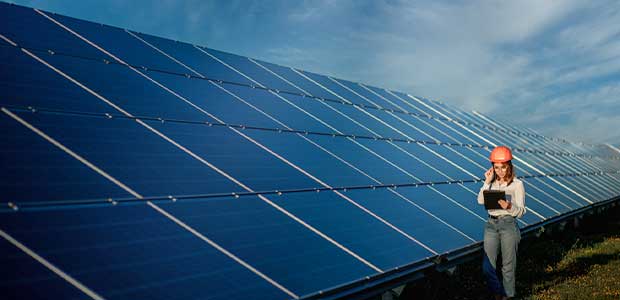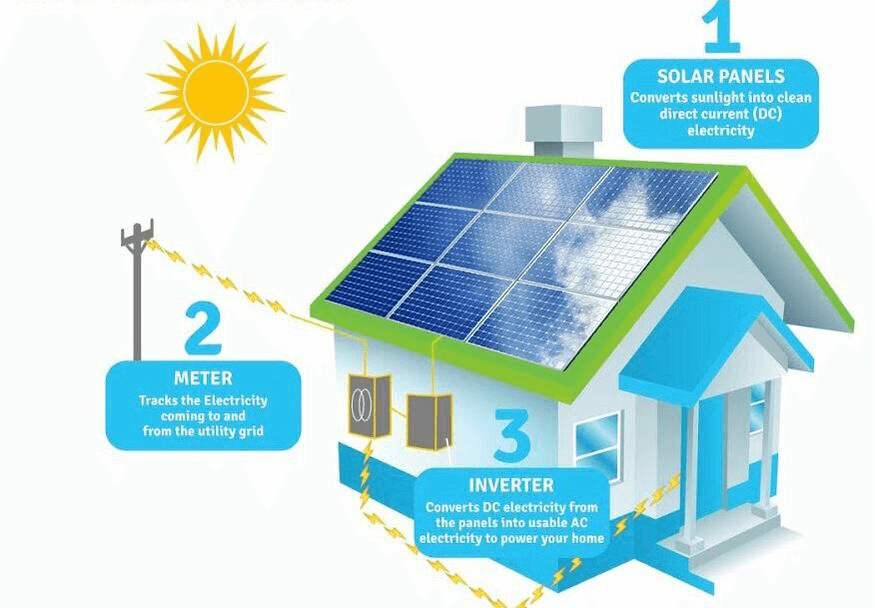Just How Solar Power Can Assist You Save Money and Decrease Your Carbon Footprint
The assimilation of solar power into your power portfolio offers a compelling opportunity for both monetary savings and ecological stewardship. As various federal government incentives come to be available, the inquiry occurs: just how can one successfully browse the initial financial investments and ongoing benefits of solar modern technology to take full advantage of both financial and environmental gains?
Recognizing Solar Energy Savings
While the change to solar energy typically entails an initial financial investment, recognizing solar power cost savings is critical for property owners and organizations alike. Solar power systems can considerably minimize power bills by utilizing the sunlight's power, converting right into substantial long-term monetary advantages. By generating their own electrical power, individuals lessen dependence on grid power, which undergoes fluctuating prices. These cost savings can build up gradually, commonly bring about a quick return on investment.
In addition, solar energy systems may qualify for numerous financial incentives, consisting of tax debts and rebates, better improving their cost-effectiveness. The accessibility of internet metering allows customers to offer excess power back to the grid, creating an extra earnings stream. These elements add to the general financial savings connected with solar power.

Along with route monetary financial savings, solar energy provides the added benefit of enhancing residential or commercial property value. Homes furnished with solar panels are commonly much more appealing to customers, as they promise lower energy costs - Simply Solar Illinois. Comprehending these elements is important for anybody taking into consideration solar energy, as it highlights not simply the potential monetary gains, but also the broader ecological and economic benefits of taking on renewable resource solutions
Preliminary Costs vs. Long-Term Conveniences
When examining solar energy, it is very important to evaluate the first prices versus the long-term advantages. The upfront investment for photovoltaic panels, installation, and relevant devices can be significant, commonly varying from $15,000 to $30,000, depending on the system size and home energy requirements. This initial expense might prevent some home owners; however, it is important to think about the possible savings gradually.
When installed, solar energy systems can considerably decrease or also get rid of monthly electricity costs, bring about substantial lasting financial benefits. Research studies suggest that property owners can conserve anywhere from $10,000 to $30,000 over the lifespan of their planetary system, generally 25 years. In addition, several states provide rewards, tax credits, and discounts that can balance out first costs, making solar much more obtainable.

Lowering Your Carbon Footprint
Lowering your carbon footprint is a critical factor to consider in today's environmentally aware society, and embracing solar power is among one of the most efficient approaches to accomplish this goal. Solar energy is a tidy, sustainable source that considerably diminishes reliance on nonrenewable fuel sources, which are major factors to greenhouse gas emissions.

Moreover, the widespread fostering of solar technology motivates the development of eco-friendly work and sustains technologies in power storage space and performance. The more people and companies purchase solar energy, the greater the collective decrease in carbon emissions, promoting a cleaner atmosphere for future generations.
Government Motivations and Rebates
Embracing solar energy not only benefits the atmosphere yet can also cause substantial financial cost savings, specifically with the availability of government rewards and discounts. Various federal, state, and regional programs are made to encourage house owners and organizations to purchase solar power systems, making the shift extra cost effective.
Among the most prominent rewards is the Federal find out here now Financial Investment Tax Obligation Credit History (ITC), which permits planetary system proprietors to subtract a substantial percentage of the installation costs from their federal taxes. This reward has been essential in lowering the ahead of time expenses related to solar power systems. In addition, many states offer their very own tax obligation credit scores, gives, and discounts that can better boost cost savings.
Moreover, some neighborhood federal governments supply building tax obligation exceptions for solar setups, making sure that house owners do not deal with enhanced residential or commercial property taxes as a result of their renewable resource investments. Utility business might additionally use rewards, including internet metering and feed-in tolls, which enable solar power customers to offer excess power back to the grid.
Selecting the Right Solar System
Picking the proper solar system is essential for taking full advantage of energy performance and monetary benefits. The choice rests on a number of factors, including energy requirements, budget plan, and available space. Property owners must begin by examining their power usage to determine the system dimension required for ideal performance.
Following, think about the various sorts of solar technologies offered. Simply Solar Illinois. Photovoltaic (PV) panels are one of the most common, converting sunshine directly right into electricity, while solar thermal systems concentrate on home heating water. Each type has unique advantages depending upon specific demands
Spending plan considerations are additionally critical. First setup prices can vary significantly, so it's crucial to compare quotes from several companies and explore funding choices. Federal government incentives and discounts can even more reduce the economic problem, making solar systems extra easily accessible.
Conclusion
The ecological advantages of solar energy contribute to sustainable methods crucial for combating environment adjustment. Government incentives enhance the usefulness of solar modern technology fostering, motivating a transition in the direction of a cleaner, a lot more economically efficient power source.